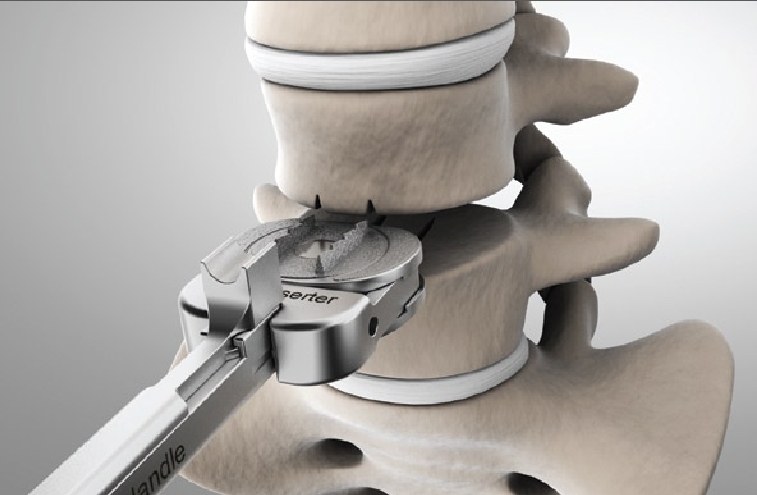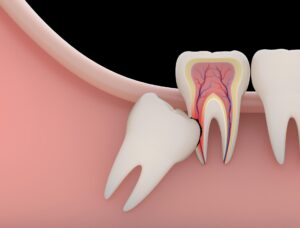
For patients struggling with chronic back pain, limited movement and reduced quality of life, spinal disc replacement surgery can offer a transformative option. Dr. Larry Davidson, a pioneer in the field, recognizes that this procedure replaces damaged spinal discs with artificial ones, offering a path to pain relief, restored mobility and a return to daily activities. The improvements in mobility and quality of life can often be significant, helping patients regain independence, engage in favorite activities and enjoy a more comfortable life.
Pain Relief and Improved Comfort
One of the most immediate benefits of spinal disc replacement is pain relief. Damaged or degenerated discs can press on nerves, causing persistent pain that radiates through the back and extremities. Replacing these discs with artificial ones can help relieve this pressure, potentially reducing or even eliminating pain. As pain diminishes, patients often experience increased comfort and a more positive outlook, making it easier to focus on recovery and gradually return to normal routines.
Restoring Natural Movement and Flexibility
Artificial discs are designed to mimic the natural flexibility and movement of healthy discs, enabling the spine to bend, twist and flex more freely. This restoration of movement can help patients perform activities like bending, lifting and reaching with reduced discomfort. Unlike spinal fusion, which restricts movement by fusing vertebrae, spinal disc replacement preserves a more natural range of motion, enhancing both mobility and quality of life. With restored flexibility, patients may be able to return to activities they may have avoided for years, from sports to everyday tasks, with renewed confidence and ease.
Faster Recovery and Return to Daily Activities
Compared to traditional fusion surgery, spinal disc replacement typically involves a quicker recovery period, allowing patients to get back to daily activities sooner. This faster recovery can support a smoother transition back into work, hobbies and personal commitments, potentially minimizing disruptions. Many individuals find they can regain their independence more quickly, reducing their reliance on others for everyday tasks. For active people, this swift recovery means they can enjoy their usual lifestyle with fewer limitations, contributing to a sense of normalcy and improved mental well-being.
Enhancing Physical Activity and Fitness
For patients whose chronic back pain has restricted physical activity, spinal disc replacement can open the door to a more active lifestyle. With pain reduced and movement restored, many patients may be able to engage in physical activities that benefit overall health, such as walking, swimming or low-impact sports. Regular exercise supports cardiovascular health, muscle tone and mental well-being, further improving quality of life. Physical activity also plays a crucial role in preventing future back issues, as strengthening the muscles that support the spine can reduce strain and prevent injury.
Boosting Emotional Well-Being and Confidence
Chronic pain can take a toll not only on the body but also on emotional health, leading to feelings of frustration, anxiety and isolation. By alleviating pain and restoring mobility, spinal disc replacement can lead to improvements in emotional well-being. Patients report feeling more confident and capable as they regain control over their bodies and re-engage with social activities and relationships. As quality of life improves, so does mental health, creating a positive cycle that reinforces both physical and emotional recovery.
Reducing Dependence on Pain Medication
Many individuals with chronic back pain rely on pain medications, including opioids, to manage their discomfort, which can carry risks of dependency and side effects. After spinal disc replacement, reduced pain levels may allow patients to reduce or eliminate the need for these medications, supporting a healthier, potentially drug-free lifestyle. This reduction in medication use benefits physical health and supports a clearer mental state, allowing patients to focus more fully on activities and relationships.
Long-Term Quality of Life Improvements
Beyond immediate recovery, spinal disc replacement offers long-term benefits that support lasting improvements in quality of life. With the artificial disc in place, patients may be less likely to experience the wear-and-tear symptoms that can accompany spinal fusion, such as strain on adjacent vertebrae. The durability of artificial discs is intended to help maintain spinal stability and function over time, potentially reducing the need for additional surgeries and enabling patients to enjoy an active, fulfilling life with minimal setbacks. This sense of lasting relief may help provide patients with peace of mind and the confidence to pursue new challenges, knowing their spine is supported.
Additionally, the artificial disc’s ability to mimic natural movement helps prevent stiffness, promoting a healthier range of motion as the body ages. Patients often find they can engage in low-impact sports, travel more comfortably and participate fully in family or community activities without constant concern about back pain. Long-term mobility also supports mental well-being, as staying physically active often enhances mood and reduces stress. For many, this newfound freedom fosters a lifestyle of increased social interaction and overall happiness. Over time, spinal disc replacement can thus transform not just physical health but also emotional resilience, encouraging patients to lead lives full of purpose and enjoyment.
Who Can Benefit Most from Spinal Disc Replacement?
Spinal disc replacement may be particularly beneficial for patients with conditions such as degenerative disc disease or herniated discs that lead to chronic pain and limited mobility. This approach can offer the freedom to move naturally for those who wish to maintain an active lifestyle without the restrictions of fusion surgery. Consulting with a specialist can help determine whether spinal disc replacement is the right solution, as individual health, spinal condition and activity goals all play roles in the decision-making process.
Spinal disc replacement surgery is not just a procedure for pain relief—it can be a pathway to a higher quality of life. Dr. Larry Davidson shares, “We have seen how minimally invasive spinal surgical techniques have resulted in a decrease in the length of certain surgeries, hospitalization time, potential for postoperative infection and readmissions to the hospital. All of this results in improved patient satisfaction.” Restoring natural movement, potentially reducing reliance on medications and enabling a return to physical and social activities, spinal disc replacement can empower patients to reclaim their lives. For those facing chronic back pain and limited mobility, discussing the option of spinal disc replacement with a healthcare provider may open the door to lasting relief and a more active, joyful life.






